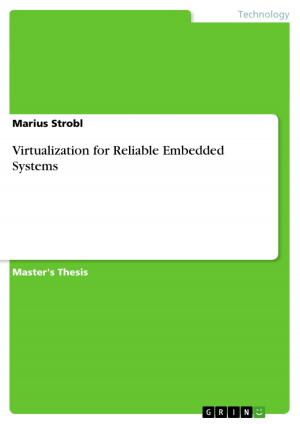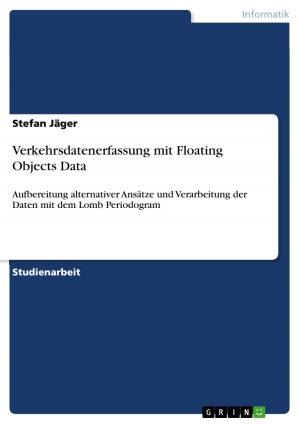| Author: | Volker Schmid | ISBN: | 9783638372916 |
| Publisher: | GRIN Publishing | Publication: | May 1, 2005 |
| Imprint: | GRIN Publishing | Language: | English |
| Author: | Volker Schmid |
| ISBN: | 9783638372916 |
| Publisher: | GRIN Publishing |
| Publication: | May 1, 2005 |
| Imprint: | GRIN Publishing |
| Language: | English |
Seminar paper from the year 2005 in the subject Business economics - Marketing, Corporate Communication, CRM, Market Research, Social Media, grade: A (80 percent), University of Teesside (Teesside Business School), 52 entries in the bibliography, language: English, abstract: According to O'Conner (1998), the impact of technology on marketing is dramatic. The industrial countries of today represent a growing information society which is based on technology. For an organisation 'information is the most precious of modern corporate resources and its exploitation the key to competitive survival, the spotlight falls on marketing' (Mazur, 1994). To gather, handle and analyse the high amount of information, companies rely on technology. 1.5 billion pounds are invested on marketing related IT applications just in the UK (Leverick, 1998), which makes 15 percent of the total amount spent on IT, and this percentage is still increasing. The aim of this paper is to evaluate the impact of all potential technologies on the marketing strategy, using a variety of industry and organisational examples, and addressing the implications and potentials for the future. Therefore, it is necessary to firstly consider the range of current and potential future technologies that may or can be utilised in the company's marketing function. Examples of how 'real' companies use this technology need to be provided and appropriate legal issues have to be discussed. Finally, possible technologies for the fictitious Business Technology PLC's marketing function are suggested including a financial plan. A wide range of technologies could be identified including hardware, software and communication technology. It could be shown that technology has a strong impact on the marketing strategy in terms of collect, handle, interchange, communicate, analyse, personalise and customise information, leading to cost reductions, more effective marketing procedures and improved customer satisfaction. The paper shows the technology-driven changes regarding the marketing mix. The use of technology by marketers is regulated by the national Data Protection Act and European laws. Finally, it is suggested that Business Technology PLC requires an internet presence, a database and a multimedia presentation of its products as a first step to increase sales, estimated set-up cost are approximately 5,500 pounds.
Seminar paper from the year 2005 in the subject Business economics - Marketing, Corporate Communication, CRM, Market Research, Social Media, grade: A (80 percent), University of Teesside (Teesside Business School), 52 entries in the bibliography, language: English, abstract: According to O'Conner (1998), the impact of technology on marketing is dramatic. The industrial countries of today represent a growing information society which is based on technology. For an organisation 'information is the most precious of modern corporate resources and its exploitation the key to competitive survival, the spotlight falls on marketing' (Mazur, 1994). To gather, handle and analyse the high amount of information, companies rely on technology. 1.5 billion pounds are invested on marketing related IT applications just in the UK (Leverick, 1998), which makes 15 percent of the total amount spent on IT, and this percentage is still increasing. The aim of this paper is to evaluate the impact of all potential technologies on the marketing strategy, using a variety of industry and organisational examples, and addressing the implications and potentials for the future. Therefore, it is necessary to firstly consider the range of current and potential future technologies that may or can be utilised in the company's marketing function. Examples of how 'real' companies use this technology need to be provided and appropriate legal issues have to be discussed. Finally, possible technologies for the fictitious Business Technology PLC's marketing function are suggested including a financial plan. A wide range of technologies could be identified including hardware, software and communication technology. It could be shown that technology has a strong impact on the marketing strategy in terms of collect, handle, interchange, communicate, analyse, personalise and customise information, leading to cost reductions, more effective marketing procedures and improved customer satisfaction. The paper shows the technology-driven changes regarding the marketing mix. The use of technology by marketers is regulated by the national Data Protection Act and European laws. Finally, it is suggested that Business Technology PLC requires an internet presence, a database and a multimedia presentation of its products as a first step to increase sales, estimated set-up cost are approximately 5,500 pounds.















